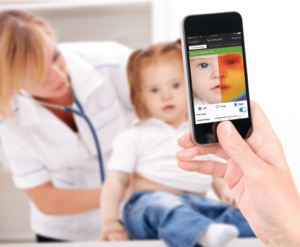How AI Technology Can Help Clinicians and Parents Identify Children with Developmental Delays
Ensuring your child is healthy and developing normally is a top priority for you as a parent, but it can be difficult to know what to do if you suspect that your child may have a developmental delay. While a visit to the pediatrician can provide some insight, advancements in AI technology are also playing a role in identifying developmental delays in children. Here’s how AI technology can help clinicians identify children with developmental delays, including the use of face analysis.
AI Technology for Early Detection
One of the primary benefits of AI technology for detecting developmental delays is that it can identify potential concerns earlier than traditional screening methods. For example, AI algorithms can analyze large amounts of data, including medical records, genetic information, and other factors that could indicate a potential developmental delay. This early detection can allow clinicians to provide early interventions and treatments that can make a significant difference in a child’s development.
Face Analysis for Dysmorphic Facial Features
Another way that AI technology can help identify children with developmental delays is through the analysis of facial features. Many developmental disorders are associated with dysmorphic facial features, which are subtle differences in facial structures that can indicate a possible genetic condition. For example, children with Down syndrome often have a flatter facial profile and smaller ears than other children. Through face analysis, AI technology can detect dysmorphic features that may indicate possible genetic conditions and alert clinicians to the need for further testing or evaluation. FDNA’s unique tool, provides information to pediatricians and parents regarding potential conditions by analyzing the child’s development status and facial features.
The Benefits of AI Technology for Clinicians
In addition to helping clinicians identify potential developmental delays in children by analyzing the child’s features and facial images, AI technology can also provide other benefits. For example, it can help clinicians streamline the diagnosis and treatment process, reducing the time and resources needed to make an accurate diagnosis. Additionally, AI technology can help clinicians make more informed decisions about treatment plans and interventions, ensuring that children receive the most effective care possible.
How Parents Can Use AI Technology
While AI technology is primarily used by clinicians to identify potential developmental delays in children, parents can also use it to supplement their child’s care. For example, FDNA’s tool for parents enables early detection of potential conditions by analyzing the child’s development status and facial features. These tools can help parents identify potential concerns early on and provide them with actionable information about how to support their child’s development.
The Importance of Working with a Pediatrician
While AI technology can be a valuable tool for identifying potential developmental delays, it’s important to remember that it is not a substitute for working with a pediatrician. A pediatrician can provide personalized guidance and support, including referrals to specialists and other resources, that can help ensure that a child receives the care and support they need to reach their full potential. Parents should always consult with their pediatrician if they have concerns about their child’s development, even if they have used AI technology to supplement their care.
Conclusions
AI technology is playing an increasingly important role in identifying potential developmental delays in children. From early detection to the analysis of dysmorphic facial features, AI technology is providing clinicians with new tools and insights that can help them provide more effective care to children with developmental delays. Parents can also use AI technology to supplement their child’s care, but it’s important to remember that working with a pediatrician is crucial for ensuring that a child receives the personalized support and guidance they need to thrive. By working together, parents and clinicians can us FDNA’s tool to help identify and address developmental delays early on, giving children the best chance for success in all areas of their lives.








